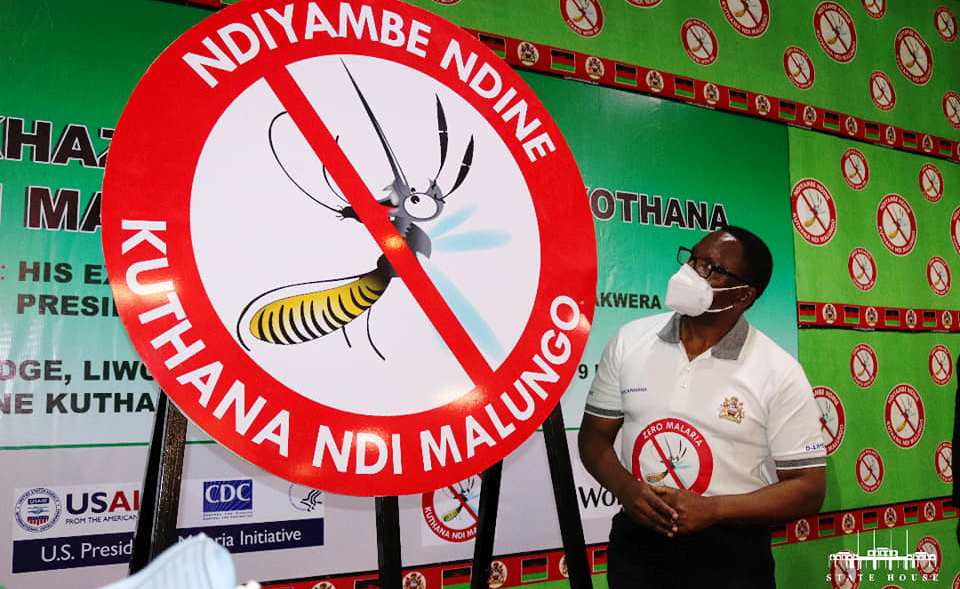Malawi hails Malaria vaccine approval
Malawi has hailed the World Health Organisation (WHO) approval of malaria vaccine, saying it will complement other interventions towards reducing the number of people affected by the disease.
In an interview yesterday, National Malaria Control Programme manager Dr. Michael Kayange said while the vaccine was not a magic bullet in itself, it will add on to other efforts such as insecticide-treated net distribution and case management in helping to deal with the disease.

He said: “The vaccine is not a magic bullet that will end malaria, but it is an additional tool to other interventions. There is no single intervention that ends it all. On case management, we have enough drugs that would take us even two years.
“People need to understand that the pilot phase was not aimed at reducing malaria, but was aimed at looking at the feasibility of implementing the vaccine. Sadly, this year we expect to have more figures of those affected by malaria because mosquito nets were distributed three years ago.”
Kayange said they will start distributing mosquito nets in 25 of the country’s 28 districts in November, but assured that government will make a decision on the vaccine.
He added: “WHO has provided overall guidance, but it is up to countries like ours to make decisions. We will make a decision as a country on this. Since the WHO just announced, we will sit down at the Malaria Control Programme and EPI [Expanded Programme on Immunization].
“We were aware of the upcoming announcement and we knew what we would go through for us to have the decision made. When that decision is made, that is when we can change the policy document because at the moment, the malaria vaccine is not within our policy.”
Kayange said during the three trials of the vaccine, it was discovered that it had an efficacy rate of 39 percent.
He said: “We still have enough vaccines for the pilot phase because it’s supposed to take three years, but we have only done 24 months, so the piloting continues.
“A child is first given the first three doses after five, six and then seventh months. The other one comes after 22 months. So, for the roll-out, it remains for government to make a decision.”
WHO on Wednesday recommended widespread use of the RTS,S/AS01 (RTS,S) malaria vaccine among children in sub-Saharan Africa based on results from an ongoing pilot programme in Malawi, Ghana and Kenya.
WHO said in a statement that to date, more than 2.3 million doses of the vaccine have been administered in the three African countries.
WHO director-gneral Dr. Tedros Adhanom Ghebreyesus stressed that using this vaccine on top of existing tools to prevent malaria could save tens of thousands of young lives each year.
He said: “This is a historic moment. The long-awaited malaria vaccine for children is a breakthrough for science, child health and malaria control. Using this vaccine on top of existing tools to prevent malaria could save tens of thousands of young lives each year.”
WHO regional director for Africa Dr. Matshidiso Moeti said for centuries, malaria has stalked sub-Saharan Africa, causing immense personal suffering.
“Today’s recommendation offers a glimmer of hope for the continent, which shoulders the heaviest burden of the disease and we expect many more African children to be protected from malaria and grow into healthy adults,” he said.
Malawi witnessed a surge in malaria infections between 2019 and 2020 with about 6.9 million cases registered in 2020, up from 5.2 million cases in 2019, representing about 33 percent increase.
During the same period, the number of deaths from the disease increased by at least 200, from 2 300 in 2019 to about 2 500 in 2020.
In 2018, the country also registered a high rate of infection at about seven million with at least 3 000 deaths.
In June this year, President Lazarus Chakwera launched the Zero Malaria Starts With Me Campaign, which is supported by the Global Fund, US President’s Malaria Initiative and World Vision.
By launching efforts to eliminate malaria in Malawi by 2030, government could help save 28 percent of income that every poor household spends annually to treat the disease.
Very low income households—with an average annual income of $68—spend roughly $20 as direct expenditure to treatmalaria in household members, which represents 28 percent of their annual income for very low income households and $19.84 per year (two percent of annual income) among low to high income households.
The indirect cost of malaria, calculated on the basis of days of work lost, was $2.13 per year (3.1 percent of annual income) among very low income households and $20.61 per year (2.2 percent of annual income) among low to high income households.
Malawi—which makes up just 0.25 percent of the world’s population, accounts for two percent of the globe’s malaria infections and is among the top 15 countries with a high malaria burden.





